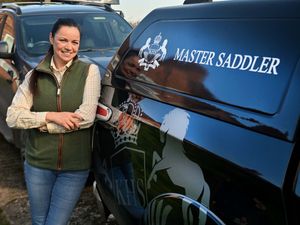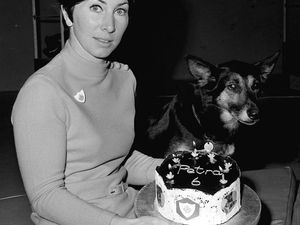What it's like to be a train driver: I see some beautiful sights but I hate being late
Ask children what they want to be when they grow up and there is a good chance their answer will be train driver.
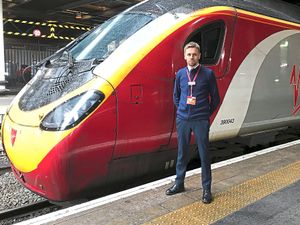
It’s a job countless people of all ages would love to do so Weekend joined Virgin Trains to find out more about this coveted role.
We took to the driver’s cab for the 14.43 service from London Euston, which was due to arrive in Wolverhampton at 16.37, on board the Pendolino 390043 Virgin Explorer.
The man responsible for getting us there was 42-year-old Dominic Breese, who has been working for Virgin since August 2014.
He explains that the first task ahead of any journey is to set up the cab and this includes checking for any faults and carrying out tests to ensure the tilt mechanism, which allows the train to navigate curves at high speeds, is working correctly.
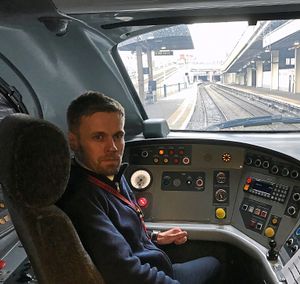
The driver will be given a paper list of all of the stations the service is calling at during the journey. Although he will be alerted ahead of a stop by the on-board computer system, Dominic says it’s always best to double-check it’s correct. “You can upset people’s days if you get this wrong,” he adds.
Once everyone is on-board and the platform staff have confirmed it’s safe to leave, Dominic will wait for the green light on the signal which will accompanied by the letter X, which tells him which route he’s taking out of the station. This will be followed by the letters RA, which stands for Right Away and essentially means it’s time to go.
Heading out of Euston we’re on the ‘down’ line. It’s the opposite of what you might expect as in railway terminology, ‘down’ means away from London, ‘up’ means travelling towards the capital. A huge part of the driver’s job is knowing everything about the route they are driving from all the stations, tunnels, speed restrictions and signals to the gradients and slight bumps in the track.
WATCH: Ride from Birmingham to Shrewsbury with Virgin
For example, Dominic who is one of 88 drivers based at the Wolverhampton depot and one of 550 covering the West Coast Main Line, knows that among many other aspects of the journey, that there is a gradient climbing out of Euston, a series of complex junctions around Rugby and to expect congestion in the approach to Birmingham New Street.
He will have already have read through the weekly operating notices which includes details of any changes to the speed restrictions. This also gives him a clue as to where there may be maintenance work being carried out along the track so he can warn them when the train is approaching.
“These things come up so quickly and silently we need to give them advance warning. When we see the high-vis jackets, we sound the horn and they will raise a hand to acknowledge it so we know they’ve heard,” explains Dominic, who lives near Whitchurch.
Sensors on the track communicate with the on-board computer system sending out alerts ahead of stations, signals and junctions. But as he knows the line so well – and is regularly tested to ensure his knowledge is up to date – he is already thinking ahead.
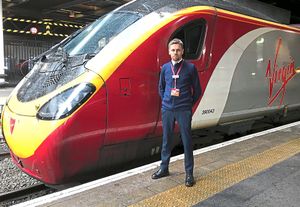
Forward planning is key he says especially when he comes to slowing down before station stops which he will start doing four miles in advance bringing the speed down from what could be a maximum of 125mph to 35mph as it reaches the start of the platform. “You want to brake early and smoothly. As well as passenger comfort, we’ve got a crew doing their job and serving hot tea and coffee,” says Dominic.
The fleet of Pendolinos are all quite similar to drive, he tells us. “Some are more perky than others, some are smoother than others but you generally know what you’re going to get,” adds Dominic.
While passengers will have one eye on the clock as they check if their train is due on time or not, the driver says he is only too aware if it’s falling behind schedule. The Pendolinos have a ‘boost’ mode which give them a little extra power and allows him to make up some time it’s running just two or three minutes late. “After we left London, we lost a minute and a half and it was just down to the train’s performance so you do feel a bit responsible for that. I hate it when it’s late through no fault of my own, we might have been following a slower train, and I can see people checking their watches. I do feel bad,” says Dominic.
At regular intervals, there is a beep and he has to reset the driver’s safety device – this is the train’s way of checking that nothing untoward has happened to him mid-route.
If he doesn’t respond fast enough, the brakes will automatically go on and the computer system will alert both the train manager and the signaller that there is a potential problem.
Shut away in the cab could seem like a lonely job but Dominic says it doesn’t feel like that at all. “Although it looks quite solitary, you do feel part of the team. You talk to the train manager and help out with taking bikes on and off with the station staff so it does feel like a close-knit team. The people we work with are fantastic,” he explains.
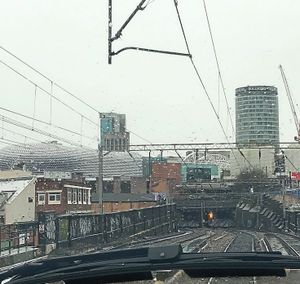
Drivers need to have a minimum of 12 hours of rest between shifts. They will work a maximum of 10 hours per shift unless they have started their working day before 5am when they are restricted to eight hours. The longest shift will see Dominic taking the train from Wolverhampton to Euston, from Euston to Preston and then from Preston to Wolverhampton. Every year, each driver will run around 500 services,clocking up approximately 65,000 miles. He says shift work can be challenging, adding: “There are early starts and late finishes so you do make sacrifices and it means you go to bed at 7pm.”
However, Dominic says the enjoyment he gets from the job more than makes up for it. “The surroundings are beautiful, you do see some beautiful stuff like early morning mists and sunrises,” he tells us.
And Dominic who left behind his previous career as a driving instructor to take up a place on a training course with Direct Rail Services in 2007, says he certainly has no regrets.
“I was out walking with my wife one day and saw one of these Pendolinos go past – I thought that would be an interesting job and that’s when the seed was planted. I had never really considered it before but it ignited a passion. It’s everything I thought it would be.”

